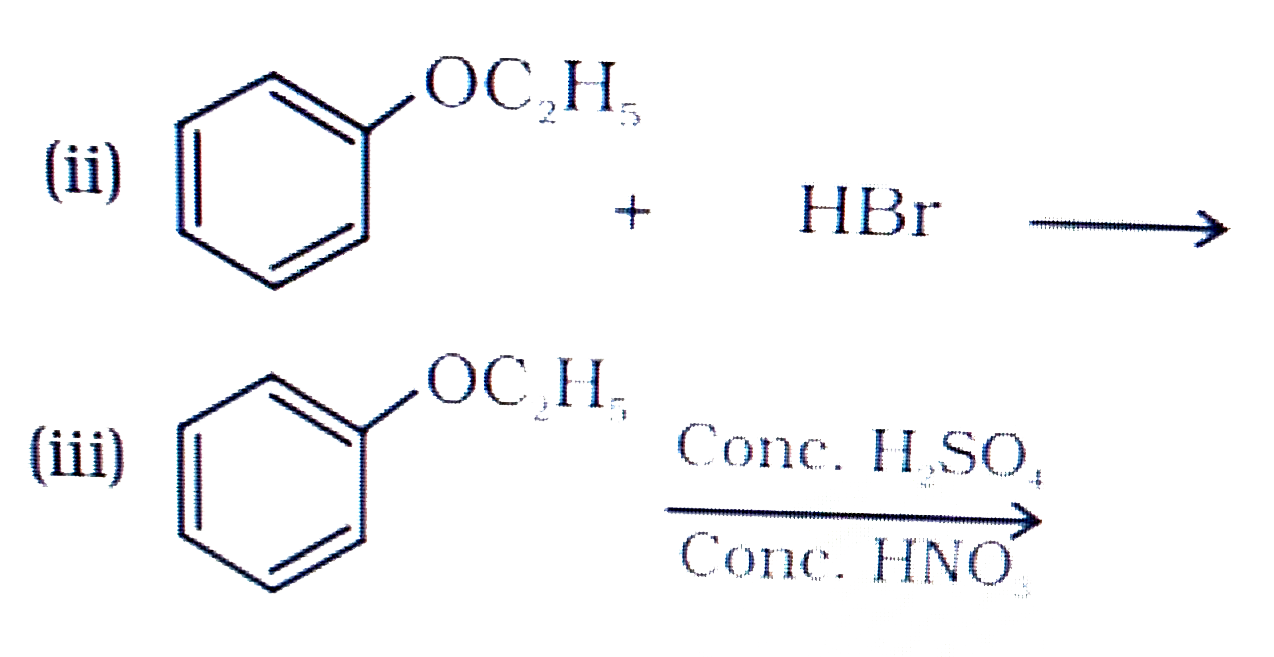Explain whether oxidation, reductio, or neither occurs in the following reactions :
(a)
(b)
( c)
(d)
II. Give the structural formula for the simplest hydrocarbon in which has a zero .
(a) Reduction, because . Of changes from to
(b) Neither, because of in both reactant and products is , i.e., no change in .
( c) Oxidation, because of changes from to
(d) Neither, because of in both reactant and product is zero, i.e., no change in .
II. The simplest hydrocarbon is . The number of atoms and atoms must be same so that their oxidation number with opposite signs would cancel.
Related Playlists
- BOOK - CENGAGE CHEMISTRY ENGLISHCHAPTER - GENERAL ORGANIC CHEMISTRYEXERCISE - Solved Example18videos
GENERAL ORGANIC CHEMISTRY
- BOOK - CENGAGE CHEMISTRY ENGLISHCHAPTER - GENERAL ORGANIC CHEMISTRYEXERCISE - Subjective11videos
GENERAL ORGANIC CHEMISTRY
- BOOK - CENGAGE CHEMISTRY ENGLISHCHAPTER - CLASSIFICATION AND NOMENCLATURE OF ORGANIC COMPOUNDSEXERCISE - Analytical and Descriptive Type3videos
CLASSIFICATION AND NOMENCLATURE OF ORGANIC COMPOUNDS
- BOOK - CENGAGE CHEMISTRY ENGLISHCHAPTER - HYDROGEN, WATER AND HYDROGEN PEROXIDEEXERCISE - Subjective Archive (Subjective)3videos
HYDROGEN, WATER AND HYDROGEN PEROXIDE
Similar Questions
Explain why the molecularity and order of the following reaction are different?
CH3COOC2H5+H2O→CH3COOH+C2H5OHView SolutionPredict the products of the following reactions:
(i) CH3−CH2−CH2−O−CH3+HBr→

(iv) (CH3)3C−OC2H5HI−−→View SolutionFollowing reaction:
(CH3)3C−Br+H2O→(CH3)3C−OH+HBr is an example of -View SolutionWrite the products of following reactions
(a) CH3−C≡NH3O−−−−→ (b) CH3NCH3O+−−−→View SolutionThe end product of the following reaction
CH3MgBr+CH2=CH−CHOH3O+−−−→ is :View SolutionCH3−CH2−CH2−C≡CH+LiNH2Lithium amide→(A)(CH3)2SO4−−−−−−−→(B)
Give the structural formula of compound (B) :View SolutionGive the IUPAC names of the following alkynes :
CH3−C≡C−CH3∣CH−CH2−CH2CH3View SolutionCalculate enthalpy change of the following reaction :
CH2=CH2(g)+H2(g)→CH3−CH3(g)
The bond energy of C - H, C - C, C = C, H - H are 414,347,615and436kJ mol−1 respectively.View SolutionThe major product of the following reaction is :
(CH3)2C=CH−CH2−CH3(i)B2H6,ether(ii)H2O2,NaOH−−−−−−−−−−−−−−−−−−−−→View SolutionCarry out the following transformation in not more than three steps.
CH3−CH2−C≡C−H→
CH3−CH2−CH2−O∣∣C−CH3View Solution


